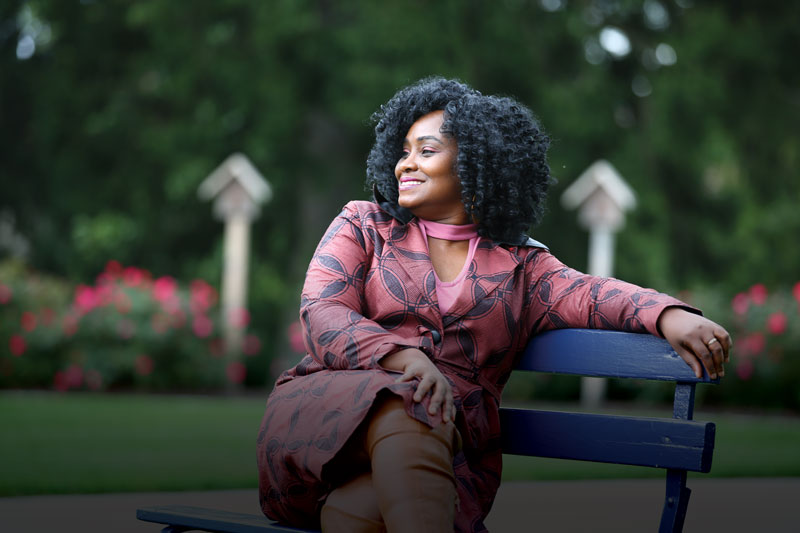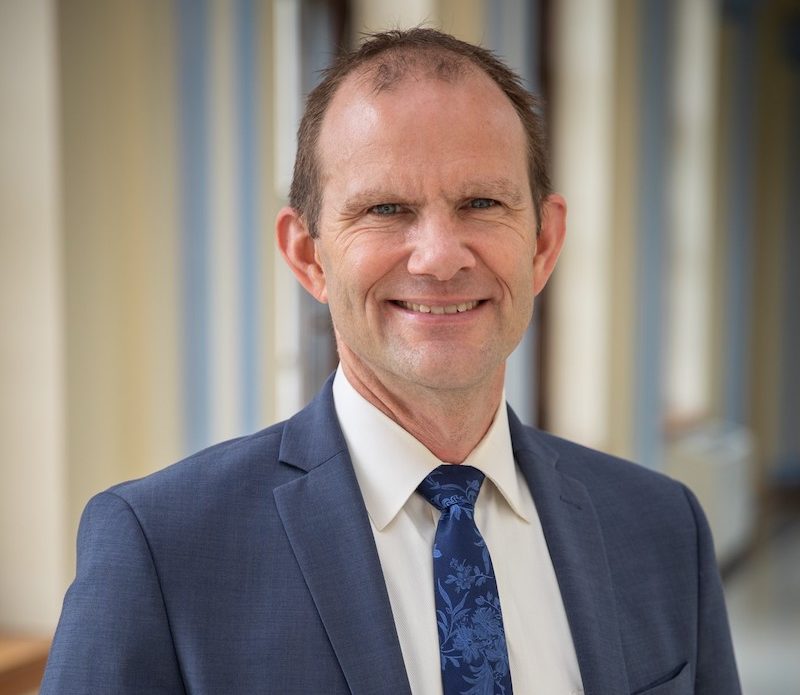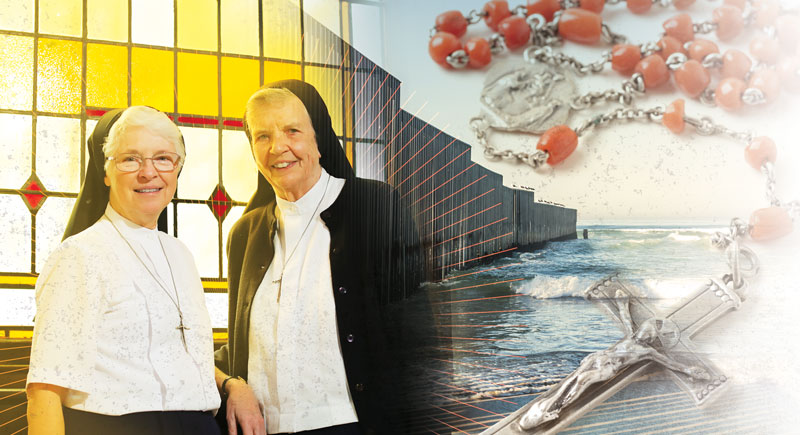The most common and accessible form of transportation for women in Liberia is motorbike. The operator tends to fit as many people on the bike as possible to maximize profits. That often means that a young woman is sandwiched between two men. She is holding onto the man in front of her and the man behind her is doing whatever he wishes to her. Poverty and cultural norms contribute to daily abuse and are the reason why rape is the second most common crime in Liberia. Richardson believes strongly that men need to learn that this is not acceptable behavior.
Born and raised in Liberia, Francien Chenoweth Richardson, Psy.D., professor of psychology at Immaculata University, recently presented a two-week-long training session on sexual and gender-based violence (SGBV) in Liberia for the Cummings Africa Foundation.
Richardson and her husband visit Liberia annually. In a country where mental health is not addressed or valued, she is one of only a few psychologists born there. Richardson was contacted by the Cummings Africa Foundation because of her support for U.S. immigrant women and her awareness of gender-based sexual violence through her non-profit organization, Diaspora Women for Change, Inc. She created a training program geared toward community leaders, health care professionals, policymakers and civic society organizations in Liberia. The focus was to establish key concepts and approaches for people who may have very little or no knowledge of working with SGBV trauma survivors. For Richardson, the training was an important first step for the Liberian community, because if victims do not come forward to report sexual abuse, then officials need to broaden the approach to preventing and addressing sexual assault.
“It’s such a hush-hush thing. You don’t talk against your family members,” Richardson says. She explains that collectivist culture allows abuse to thrive within households. In such cultures, the group is more important than an individual’s action or identity. Thus, the main breadwinner, almost always male, is the most important person in the family, because he provides for the group. If a relative accuses the breadwinner of sexual abuse, he could be charged and taken away from the family—leaving them in poverty. At this point, the accuser would become ostracized from her family and victimized twice.
Although Richardson knew that rape was a huge problem in Liberia—she has referred to it as a public health crisis—she was astonished at how widespread the problem really is. From the first day of training, she noticed that the attendees filtered their comments and mostly kept silent. If anyone had endured sexual abuse, she certainly was not going to admit it publicly.
Yet, perhaps Richardson’s training has given a voice to the once voiceless. As she was lecturing, she heard someone sniffling from the corner of the room. She noticed a woman crying. Richardson switched to her counseling duties and asked the woman if she needed help. The woman declined, so Richardson continued her presentation. Soon thereafter, the woman thanked Richardson for her kind gesture, telling her that it touched her and stating that she had been abused years earlier. Richardson also had not expected so many women to approach her during the lunch breaks to state that they had been sexually abused as well. Ironically, at an event meant to bring awareness about sexual abuse, women did not want to publicly say they had been victimized.
Richardson’s background as a psychologist added a component to the training that is often overlooked: how to talk to victims. She explained that it is important to make eye contact, to listen and not blame the victim, to face the person with an open body posture, to maintain a positive and warm tone of voice and to refrain from interrupting. Richardson also addressed the biological manifestation of trauma, including the body’s fight or flight response.
Another unsettling discovery came when Richardson realized that young boys and grown men were being abused at an alarming rate too. She always includes this population in her training sessions, because over the years the focus has been almost solely on women.
“We can’t have this conversation just among women anymore. We have to have our allies with men, who also might be abusing girls and women or men, but who are in a position of power to create laws to stop this abuse,” she says. She believes that people who abuse others should pay heavy consequences—using the full weight of the law. In this area, Richardson concedes that much work needs to be done in Liberia. However, criminals cannot be prosecuted if their crimes have not been reported. Again, this is another area needing dramatic improvement.
“In my training, I discuss that women are not other people’s slaves. Women are just as capable as men and need to consent to relationships,” Richardson says. She understands that gender inequality is not totally unique to Liberia. The difference in the U.S. is that people are taught these relationship values, whereas men in Liberia, where the culture is different, perceive their behavior as normal—almost acceptable.
As Richardson and her husband walked along the busy city streets of Congo Town near the capital city of Monrovia, she noticed that many women looked depressed, emotionless and defeated. They are afraid to leave their houses to walk to the market. Many of the youth, both males and females, express anger and hostility. Richardson recognizes these outward expressions as coping mechanisms for victims of trauma.
Although the training was exhausting, not just physically but emotionally, Richardson hopes to continue providing Liberians some form of SGBV training in the future. For her, it’s personal: the people of Liberia are her people. She wants future generations to live life without the constant threat of sexual abuse.






